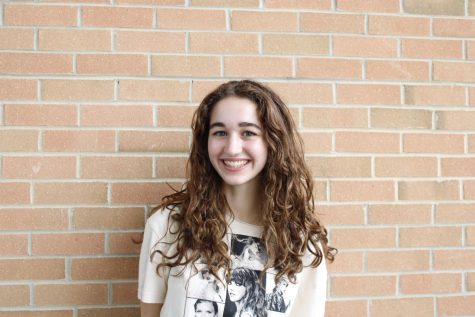
“Quiet on Set: the Dark Side of Kids TV” is a five part docuseries that uncovers a culture of workplace toxicity and sexual harassment at Nickelodeon. The first four parts of the documentary premiered on March 17, amassing widespread attention on social media. According to Billboard, a record-breaking 16 million viewers watched the documentary across streaming platform Max and Investigation Discovery. A fifth episode, titled “Quiet on Set: Breaking the Silence,” aired on April 7, featuring additional interviews with former child stars.
“Quiet on Set” captivated audiences and kickstarted conversations about protecting child actors and abuse within the entertainment industry. Notably, “Drake and Josh” star Drake Bell went public with the story of the sexual abuse he suffered while working at Nickelodeon for the first time.
Bell was sexually assaulted by dialogue coach Brian Peck, who worked for Nickelodeon, when he was 15. Prior to the abuse, Peck had groomed Bell for years by driving a wedge between Bell and his father and alleging that Bell’s father was stealing money from his son. After Bell separated from his father, who had sensed Peck’s intentions, Peck began driving Bell to auditions and suggesting that he stay with Peck overnight. During this time period, Peck sexually assaulted Bell for six months, until Bell told his mother, who immediately went to the police. When asked to describe the abuse on the documentary, Bell said, “Why don’t you imagine the worst thing someone could do to someone as sexual assault. I don’t know how else to put it.” In 2004, Peck pleaded no-contest to two felonies, but Bell’s identity was kept a secret in court records.
Shockingly, Peck received support from prominent Hollywood figures during the trial; actors James Marsden, Alan Thicke and Taran Killam, among others, wrote letters of support for Peck. Some of the people who wrote letters have since apologized and expressed regret for their actions.
Additionally, the documentary reveals that two other Nickelodeon staff members were convicted of sexual assault. The mother of child actor Brandi recounts in the documentary how production assistant Jason Handy befriended her daughter, eventually sending Brandi a photo of himself masturbating. While this incident was not reported to police, Handy was later sentenced to six years in prison in 2004 for sexual exploitation of a child, among other charges.
Ezel Channel, an animator at Nickelodeon, was sentenced to prison in 2009 for committing lewd acts on a 14-year-old boy and showing him pornography on set. Channel was a convicted sex offender prior to working at Nickelodeon, prompting viewers to wonder how to better protect child actors from predators while on set.
The documentary also focused on former Nickelodeon producer Dan Schneider, who has come under fire for creating a toxic work environment and exploiting child actors. In the documentary, two staff writers for the show “All That” discussed the sexism they experienced while working under Schneider. Christy Stratton and Jenny Kilgen shared that they were forced to share a salary, while male writers received a full salary. Kilgen also recounted how Schneider would request massages from female staff members and how she was once forced to pitch a script while pretending to be engaged in a sexual act. Other female staff members shared how they felt they had to play along with Schneider’s inappropriate behavior in order to keep their jobs.
The documentary showcased how child actors were often forced to participate in sketches with covert sexual innuendos and put into uncomfortable situations. Alexa Nikolas, who starred in “Zoey 101,” remembered one scene in which costar Jamie Lynn Spears had goo squirted on her face, and some boys on set said that it resembled ejaculation. Leon Frierson, an actor on the show “All That,” recounted how he was pressured into wearing a costume for a character called “Nose Boy,” which he said resembled male genitalia. The documentary also showed clips of singer and “Victorious” actor Ariana Grande participating in skits that are thinly-veiled sexual innuendos. Child actors and their parents also discussed how they felt pressured to go along with scenes that made them uncomfortable in order to stay on Schneider’s shows.
In response to the allegations, Nickelodeon released a statement to Entertainment Weekly, saying, “Though we cannot corroborate or negate allegations of behaviors from productions decades ago, Nickelodeon as a matter of policy investigates all formal complaints as part of our commitment to fostering a safe and professional workplace environment free of harassment or other kinds of inappropriate conduct.”
Nickelodeon added that the company has “adopted numerous safeguards over the years to help ensure we are living up to our own high standards and the expectations of our audience.”
Schneider also responded to the allegations in an interview with former Nickelodeon actor BooG!e that is posted on Schneider’s YouTube channel. Schneider apologized for some of his actions, including soliciting massages and making inappropriate jokes in the writers’ room. “Watching over the past two nights was very difficult, me facing my past behaviors, some of which are embarrassing and that I regret, and I definitely owe some people a pretty strong apology,” Schneider said in the nearly 20-minute video. Schneider also stressed that his shows faced “many, many levels of scrutiny” by Nickelodeon in an effort to refute allegations that some of the content on his shows was inappropriate and oversexualized for children.
However, Schneider received criticism for what was perceived as a lackluster apology. “When someone doesn’t personally come to you and apologize, it’s not an apology,” Nikolas said in her own YouTube video. “If you hear about it through other people, it’s not really an apology right? An apology is to the person that you hurt. That’s what an apology is for.”
The documentary itself has not been immune from criticism, with former Nickelodeon game show host Marc Summers alleging that he was interviewed under false pretenses. Similarly, Nikolas and former child actor Raquel Lee Bolleau attacked the documentary for concealing its true aims and subject matter from participants. “They pieced together a story and a narrative that they had on their own,” said Lee Bolleau in an interview with IndieWire. “The reason they kept us all apart and from knowing specifics was because they knew if we all got together, we would start sharing and exchanging experiences and figuring out what this really is and what it means for us.”
While “Quiet on Set” sheds light on an important topic and will hopefully bring about better protections for child actors, the docuseries feels disorganized and sensationalized. It jumps from topic to topic, discussing sexism and racism in the entertainment industry, the sexualization of child actors and child sexual abuse. Bell’s identity is treated as a cliffhanger, belying the gravity of his story, and the documentary turns actors’ childhood trauma into sensationalism by replaying clips of children being sexualized. Ultimately, “Quiet on Set” falls into the same pitfalls as its subject: using child actors for entertainment.











































